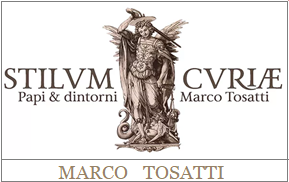 ‘A sword for life:
‘A sword for life:
Towards rediscovering Christian virility’
A book review
Translated from

January 9, 2018
We have been alerted to a book by Emiliano Fumaneri (born 1974 in Veron)a, which anthologizes a series of ‘war stories’ filed during the two huge Family Day events in Italy (at Piazza San Giovanni, in front of the Lateran Basilica, on June 20, 2015; and at the Circus Maximus, on January 30, 2016).
The first part of the book contains a reasoned polemic against the dispensers of ‘ideological colonization’ (peddling gender ideology, aggression against traditional marriage and the family, the culture of death, biotechnologies, etc). The second part deals with the now neglected issue of Christian virility. We remember reading some of the articles in Part 1 during the events described.
The publisher’s blurb says of the book:
“Today, in fact, Catholicism is seduced by a misguided ‘misericordism’ – that is, the ideology, but not the practice, of mercy. Pas de miséricorde pour les ennemis de la miséricorde! (No mercy for the enemies of mercy!) In confronting this new ideology, Fumaneri does not keep back a rebellious impulse: “Nietzsche accused Christians of being a gathering of resentful people, seeing them as weaklings quick to dress up as idealism their incapacity to face life. As did the ‘devout Catholics’ much reproved by Charles Peguy as the eternal emblem of all those who think themselves elevated after having brought down the healthy and the strong, Christian flaccidity survives by denigrating everything that is noble, prosperous, vigorous, forward-moving. Christian resentment proves that under the mask of ‘virtue’ often smolder the false gods of hatred, envy and contempt for life. I am sure that today Nietzsche would address his invective against those Christians quick to fill their mouth with noble-sounding words like ‘inclusiveness’, ‘unity’, ‘welcome’, dialog’, ‘mercy’, without ever thinking that to have mercy is exactly the opposite of idiotic indifference to the misfortune of others”.
True mercy, Fumaneri writes, is a liberating exercise of the faith:
It was St Thomas Aquinas who said that «iustitia sine misericordia crudelitas est, misericordia sine iustitia mater est dissolutionis» (Justice without mercy is cruelty; mercy without justice is the mother of dissolution).
Justice without mercy becomes cruelty, ferocity, violence. But mercy with justice brings dissolution, weak-spiritedess, lack of energy. The false alternative between mercy and justice is between rigidity and putrefaction – a false battle between two attributes of corpses.
Mercy demands justice. No one is more alien to being indulgent to sin as the truly merciful man. Only the saints know how to be so merciful as to experience affliction because of the evil that enchains another creature, as if they had been flayed in their own flesh. And only the saints are free enough to have the strength and the will to free those prisoners from their chains.
The book leaves the reader with a disquieting question: “Suppose the cultural and political subordination of Catholics were nothing but a disconcerting though well-disguised lack of virility?” Mind you, not virility as a gender attribute, opposite to femininity, but virility as greatness of spirit manifested by both men and women? If you wish it, you can be virile in your faith.